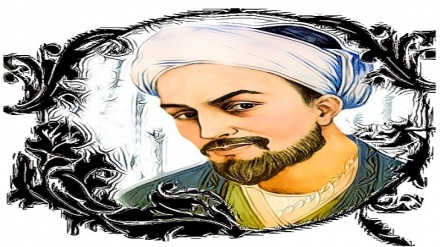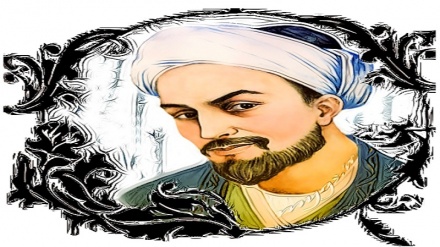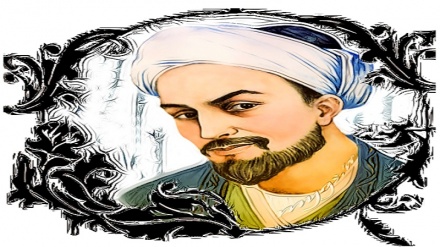Iranian notables, sources of global honor (192)
Welcome to this week's episode of the series "Iranian Notables, Sources of Global Honor". Today, we continue to discuss the life and works of the renowned Iranian poet, Masoud Sa'ad Salman, who lived in the second half of the 5th Century AH.
It was said that Masoud Sa'ad Salman was one of the prominent poets who lived throughout the rule of Ghaznavid and Saljuqid dynasties. He was originally from the city of Hamedan. However, given his father's administrative posts and services, he was born in the city of Lahore between 425 AH to 438 AH. Masoud Salman's father and ancestors were among the virtuous and knowledgeable figures of their eras. Masoud learned the principles of combat, horse riding, and marksmanship in addition to sciences and arts upon attending the classes of well-known lecturers of his time. His familiarity with literature, had him interested in poetry, such that he turned into a highly skilled poet, composing long odes. He entered the Ghaznavid royal court as of a young age. Upon the instruction of Sultan Ibrahim, he accompanied Sultan Ibrahim's son, Seif Ed-Din Mahmoud to India. Masoud Salman maintained an elevated status before Seif Ed-Din Mahmoud. However, this phase in time came into an abrupt end due to the ill remarks of those who envied Masoud, before the Ghaznavid King. Upon the order of the Ghaznavid King, Sultan Ibrahim; his son, Prince Seif Ed-Din, in the company of his servants and associates, including Masoud Salman, were imprisoned. Masoud Sa'ad Salman spent twenty years behind bars. The poems he composed during this period of time, reflect the hardships he endured and the sorrow he felt in the absence of his wife and children. Upon his release, Masoud Salman no longer sought important administrative posts. Nonetheless, he remained in the royal court and was engaged in cultural affairs for the rest of his life. He was instated as the bookkeeper of the large library of Ghaznavid King, Sultan Masoud. Masoud Sa'ad Salman most probably passed away in the city of Ghaznain in 515 AH.
Eulogies have consisted a large segment of Salman's collection of poems.
Eulogy is a theme of poetry in Farsi language, which is mainly composed within the form and shape of long odes. Eulogy is in fact the oldest and most important common theme in Farsi poems, which has consisted a lion's share of works in verse in Farsi, as of ancient times to this day. Literary researchers have divided the duration, within which eulogies have been composed, into four phases; the first phase of which is the most important one. The golden age of eulogy begins as of the Samanid era. Thereafter, Ghaznavid and Saljuqid dynasties also promoted and developed poetry and literature. Encouragement and support for the literary figures via presentation of rewards and precious gifts was only feasible through kings, and prominent figures in the ruling systems. In this manner, poetry officially gained entry to royal courts and poets were thereafter considered as courtiers, to an extent that poets accompanied kings' entourage throughout ordinary journeys, and battles.
In eulogies, efforts are usually made to admire and praise the appropriate traits of the one who has been lauded, and the admirations should also be in line with the characteristic traits and aspirations of the one who is praised. If the praised figure did not maintain good traits; upon the attribution of good traits to the related individual, poets encouraged them to develop such good traits.
Ghaznavid Kings, especially Masoud Ghaznavi, upon establishment of the needed political and economic background, paved the way for actualization and development of talents of the then poets. By studying the collection of poems of the poets who lived in the Ghaznavid era, one realizes that Ghaznavid kings instated virtuous and literary figures to governmental posts, including the famed poet, Masoud Sa'ad Salman.
One of the main features of Masoud Salman's poetry is its philosophical and at times scientific themes. In the meantime, one of the apparent features of his poetry is the harmony which is observed within the structure of his long odes. In other words, the poetic lines of his odes are related to each other; in contrast to many other odes composed in Farsi language by other poets.
The other feature of his eulogies is that the reader indirectly gains insight into the traits of courtiers. His eulogies also indirectly present the expectations of his community.
MR/ME


